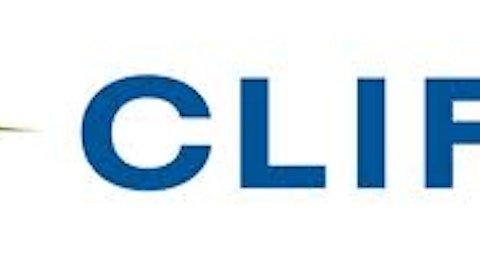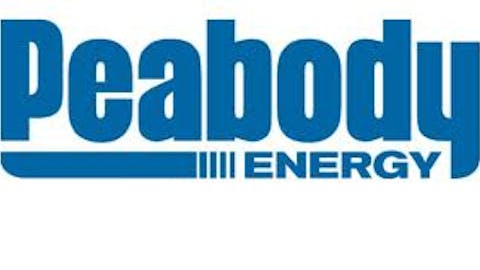Though the stocks haven’t traded well the last couple of days, costs cuts have improved the potential for rebounds in both Peabody Energy Corporation (NYSE:BTU) and Walter Energy, Inc. (NYSE:WLT). Peabody Energy Corporation (NYSE:BTU) easily smashed estimates while Walter Energy, Inc. (NYSE:WLT) provided hope that a liquidity crisis wouldn’t smash the stock.

Coal stocks trade at multi-year lows as falling commodity prices have hit revenues, but now the companies have been able to drastically cut costs. Will the cost cuts be enough to solve the woes of the stocks?
Peabody Energy Corporation (NYSE:BTU) lowers costs
The company reported better than expected Q2 2013 earnings due in part to lower costs. While revenues dropped 13% to $1.7 billion, Peabody Energy Corporation (NYSE:BTU) actually sold more tons of coal at 60.8 million. For earnings to beat when a company is producing more product yet reporting smaller revenues, it really has to contain costs to offset the drop in pricing.
Peabody Energy Corporation (NYSE:BTU) was able to lower operational costs by 6.2% in Australia and 5.5% in the U.S. operations. With more employee cuts in Australia, the leading coal producer hopes to further reduce those costs.
More importantly, Peabody Energy Corporation (NYSE:BTU) is targeting Q3 2013 adjusted EBITDA in the consensus range while earnings guidance is greatly ahead of the analysts expected loss of $0.15.
Walter Energy, Inc. (NYSE:WLT) slashes dividend
Even after writing about the expectations of Walter Energy, Inc. (NYSE:WLT) slashing the dividend alongside a credit restructuring, the stock slumped over 20% the next two trading days on the actual news. The company slashed the quarterly dividend to $0.01 from $0.125 or effectively eliminating it.
From an operational standpoint, the company expects metallurgical coal production to total approximately 2.9 million metric tons, up around 7% sequentially. More importantly, the met coal cash cost of production is expected to have declined by more than 10%, or over $10 per metric ton sequentially.
While met coal sales were disappointing due to late arrivals of vessels, the reduced costs and higher production bode well for the future of Walter Energy, Inc. (NYSE:WLT) when the coal market turns.
Promising for Alpha Natural
These numbers from Peabody and Walter Energy, Inc. (NYSE:WLT) bode well for Alpha Natural Resources, Inc. (NYSE:ANR) when it reports earnings results on August 2. With one of the largest met coal reserves in the world, the company will benefit from a global recovery in steel demand. Unfortunately analysts continue to expect large losses for the next couple of years so clearly reduced costs are needed to turn the company back to profits.
Analysts expect revenue to slump 27% this year due to mine closures and slumping prices. With the company already a significant money loser, lower costs are a must for Alpha Natural Resources, Inc. (NYSE:ANR) to ever recover to profitable operations.
Bottom line
The coal companies are doing a better job of slashing costs to go along with the reduced pricing amid higher inventories and a slowing global economy. While the stocks remain at multi-year lows, signs are emerging that demand will continue growing as China, Germany, Japan, and India continue to drive increased imports of met and thermal coal. Unfortunately, coal supplies from Indonesia, Mongolia, and Australia are putting pressure on pricing as supplies outstrip demand. Eventually though, the demand supply equation will get back into favor of the suppliers providing for gains in stocks priced as if coal demand is falling.
Mark Holder and Stone Fox Capital Advisors, LLC own shares in Alpha Natural Resources. The Motley Fool has no position in any of the stocks mentioned. Mark is a member of The Motley Fool Blog Network — entries represent the personal opinion of the blogger and are not formally edited.
The article Coal Stocks Improved on Cost Cuts Though Stocks Slump originally appeared on Fool.com is written by Mark Holder.
Copyright © 1995 – 2013 The Motley Fool, LLC. All rights reserved. The Motley Fool has a disclosure policy.




